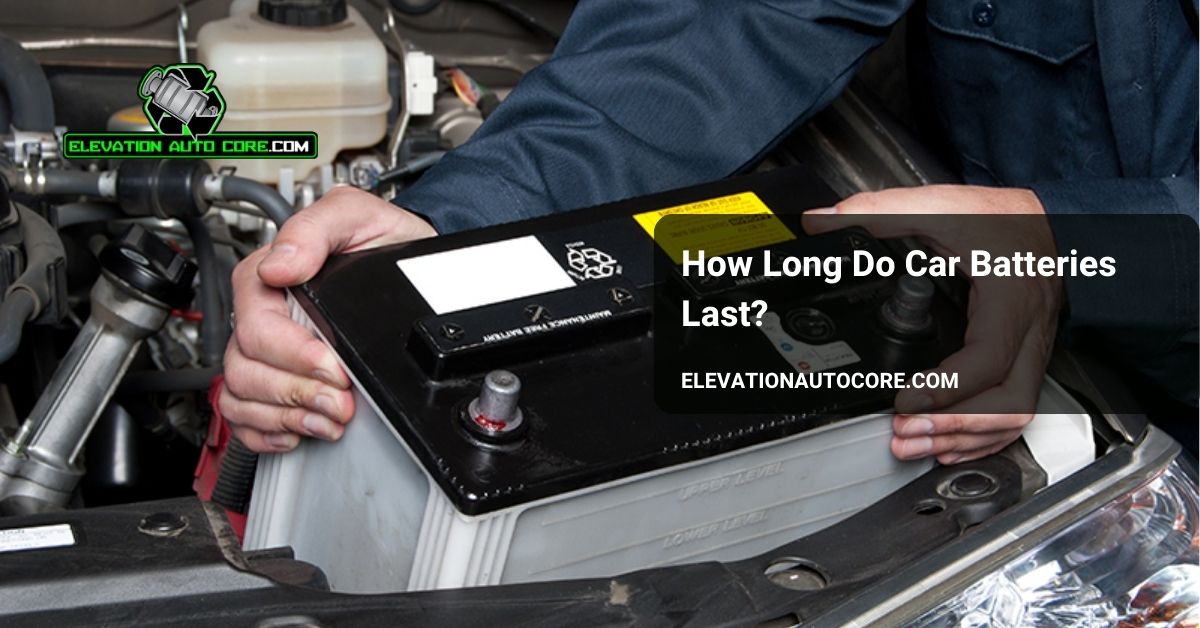How long do car batteries last, and are you sure yours is ready for the road ahead? A car battery isn’t just a component—it’s the heart of your vehicle’s electrical system. Understanding its lifespan could save you from unexpected breakdowns and costly replacements. Keep reading to learn what impacts your battery’s longevity and how to make it last longer.
Factors Affecting Car Battery Lifespan

Understanding what impacts a car battery’s life helps in making informed decisions and preventing unwanted issues. Several key elements influence how long your battery lasts.
Climate And Weather Conditions
Extreme temperatures significantly affect battery performance. Hot climates accelerate fluid evaporation, damaging internal components. Cold weather slows the battery’s chemical reactions, making it harder for the car to start. Regions with moderate temperatures tend to support longer battery life.
Driving Habits
Short trips limit the alternator’s time to recharge the battery. Frequent stop-and-start driving places additional strain on it, reducing longevity. Regular long drives ensure optimal charge levels and maintain battery health.
Type Of Car Battery
Different batteries offer varied lifespans. Lead-acid batteries usually last 3 to 5 years with normal use. Absorbent Glass Mat (AGM) batteries, designed for higher performance, generally outlive standard lead-acid types. Lithium-ion variants provide even longer life spans when properly maintained.
Maintenance And Care
Routine checks prevent premature failure. Cleaning the terminals avoids corrosion, which can disrupt power flow. Ensuring secure connections reduces vibration-related damage. Regularly testing your battery identifies potential issues before they worsen.
Average Lifespan Of Car Batteries

Car batteries generally last several years, but their lifespan varies depending on their type and how they’re used. Understanding different battery types can help you make informed choices and extend their functionality.
Conventional Lead Acid Batteries
Lead acid batteries typically last 3 to 5 years under normal conditions. These batteries, found in most standard vehicles, can falter sooner in extreme climates. Colder temperatures can slow chemical reactions, while high heat causes internal damage. Regular cleaning and proper charging habits support longevity.
AGM And EFB Batteries
Absorbent Glass Mat (AGM) and Enhanced Flooded Batteries (EFB) often last 4 to 6 years. AGM batteries, offering reliable power, excel in start-stop systems and high-performance vehicles. EFB types provide durability but require proper care to match AGM durability. Overcharging reduces lifespan for both types.
Lithium Ion Batteries
Lithium ion car batteries offer a lifespan of 8 to 10 years, making them the longest-lasting option. These batteries are mainly used in electric and hybrid vehicles due to their energy density and lightweight design. Regular temperature monitoring is essential since exposure to extreme heat significantly degrades capacity.
Signs Your Car Battery Is Failing

Recognizing early signs of battery failure can save you from unexpected breakdowns. Certain symptoms indicate declining battery performance and may require immediate attention.
Slow Engine Crank
A sluggish engine crank points to reduced battery charge. When starting your car, listen for a slower-than-normal cranking sound or delays in engine turnover. This issue could worsen in colder weather, where battery performance naturally decreases.
Dashboard Warning Lights
Modern vehicles often display a battery-shaped warning light when issues arise. If this light comes on while driving, your battery or charging system may not be functioning correctly. Inspect the battery and alternator promptly to prevent further complications.
Swollen Battery Case
Extreme temperatures can cause the casing to swell. A bulging or swollen battery case might indicate internal damage, often due to overheating. This condition can shorten the lifespan of your battery or render it unusable.
Frequent Jump-Starting
Needing to jump-start your car regularly suggests the battery can no longer hold a sufficient charge. A fully functional battery should power the vehicle multiple times without external assistance. If jump-starting becomes a pattern, replacement is likely necessary.
Tips To Extend Battery Life

Extending your car battery’s lifespan requires attention to care and usage. Incorporate these simple practices to maximize its performance and durability.
Regular Maintenance Checks
Frequent inspections can help identify potential issues early. Examine battery terminals for corrosion and ensure all connections are secure. Test the battery’s voltage regularly; a healthy lead-acid battery typically reads 12.6 volts or higher when fully charged. Consult a professional if readings drop below optimal levels.
Avoid Short Drives
Short trips can deplete your battery’s charge without giving it enough time to recharge. Aim for drives longer than 20 minutes to keep the alternator functioning effectively. Combine errands into fewer trips to reduce strain on the battery.
Keep Your Battery Clean
Dirt and debris on the battery surface can create a conductive path, leading to faster discharge. Wipe the casing with a damp cloth and clean terminals with a mixture of baking soda and water. Use a terminal brush to remove corrosion, which can interrupt electrical flow.
Ensure Proper Charging
Overcharging or undercharging can damage the battery over time. Check the vehicle’s charging system to ensure it delivers the correct voltage. Avoid leaving electronics plugged in overnight, as this can drain battery power when the engine’s off.
Conclusion
Understanding your car battery’s lifespan and the factors that influence it is essential for maintaining your vehicle’s reliability. Focusing to early warning signs and adopting proper care practices, you can avoid unexpected issues and extend your battery’s performance.
Whether you’re dealing with a conventional lead-acid battery or a more advanced lithium-ion option, staying proactive with maintenance ensures you get the most out of your investment. A little attention goes a long way in keeping your car running smoothly and efficiently.

